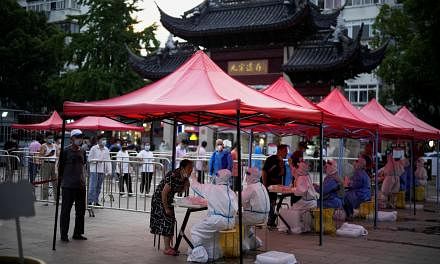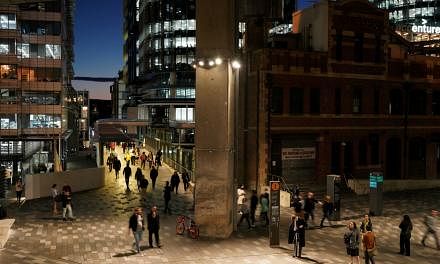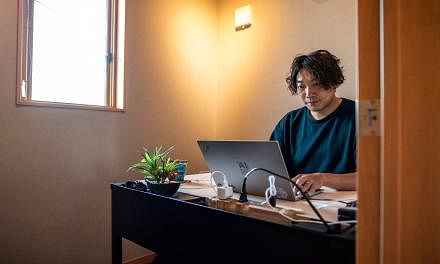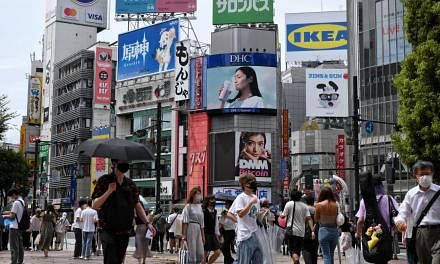LONDON (REUTERS) - Prime Minister Boris Johnson indicated on Wednesday (Jan 27) the Covid-19 lockdown in England would last until March 8 when schools could start to reopen, as the government announced new measures to clamp down on travel to and from Britain.
A highly contagious new variant of the virus, which emerged in south-east England at the end of last year, has led to a soaring number of infections across Britain with cases and deaths reaching record levels.
On Tuesday, Britain's Covid-19 death toll surpassed 100,000, the first European state to reach that figure, leading to questions about Johnson's handling of a crisis that has also battered the economy.
England has been in lockdown since the start of January with schools, pubs and restaurants closed and people told to stay home as much as possible. Scotland, Wales and Northern Ireland, whose governments decide on their own measures, are also under various restrictions.
Britain has begun a vaccination programme aimed at delivering shots to 15 million people in priority groups by the middle of February.
Johnson told parliament he hoped that would allow schools to begin reopening the following month.
"We hope it will therefore be safe to begin the reopening of schools from Monday the 8th of March, with other economic and social restrictions being removed (then or) thereafter, as and when the data permits," he said.
Britain has banned travellers from 22 high-risk nations, where new coronavirus variants have emerged, such as South Africa and some in South America, or may be present, like Portugal.
The government said new measures would mean travellers to Britain from those countries who could not be refused entry would now have to quarantine for 10 days in government-provided accommodation.
Those wishing to leave Britain will need to explain why in a declaration checked before departure, with vacations not an acceptable reason, said Home Secretary (interior minister) Priti Patel. More police will be on duty at ports and airports to send home people who had no valid reason for travel.
"People should simply not be travelling," she told parliament, citing cases of people turning up at a London train station with skis.
"That is clearly not acceptable. We see plenty of influencers on social media showing off about which parts of the world that they are in, mainly in sunny parts of the world. Going on holiday is not an exemption."
Airlines and the travel industry, which are struggling after eleven months of the pandemic, called for urgent support in the wake of the measures and for a clear roadmap out of the restrictions.
Britain has the world's fifth highest toll from Covid-19, reaching 101,887 by Wednesday, and the highest deaths per 100,000 people. Johnson has said he feels deep sorrow about the loss of life, but added the government had done everything it could.
He has faced strong criticism from the opposition, in the media and from many health experts for not locking down sooner, failures in the testing and tracing system, and problems in providing protective equipment for medics. His government is hailing the roll-out of the vaccination programme as a big success, however.
Asked repeatedly by the leader of the Labour opposition, Keir Starmer, why Britain had fared so badly, he said there would be a time to learn lessons but "I don't think that moment is now" when 37,000 people were in hospital with the virus.
"There are no easy answers, perpetual lockdown is no answer," he said.








